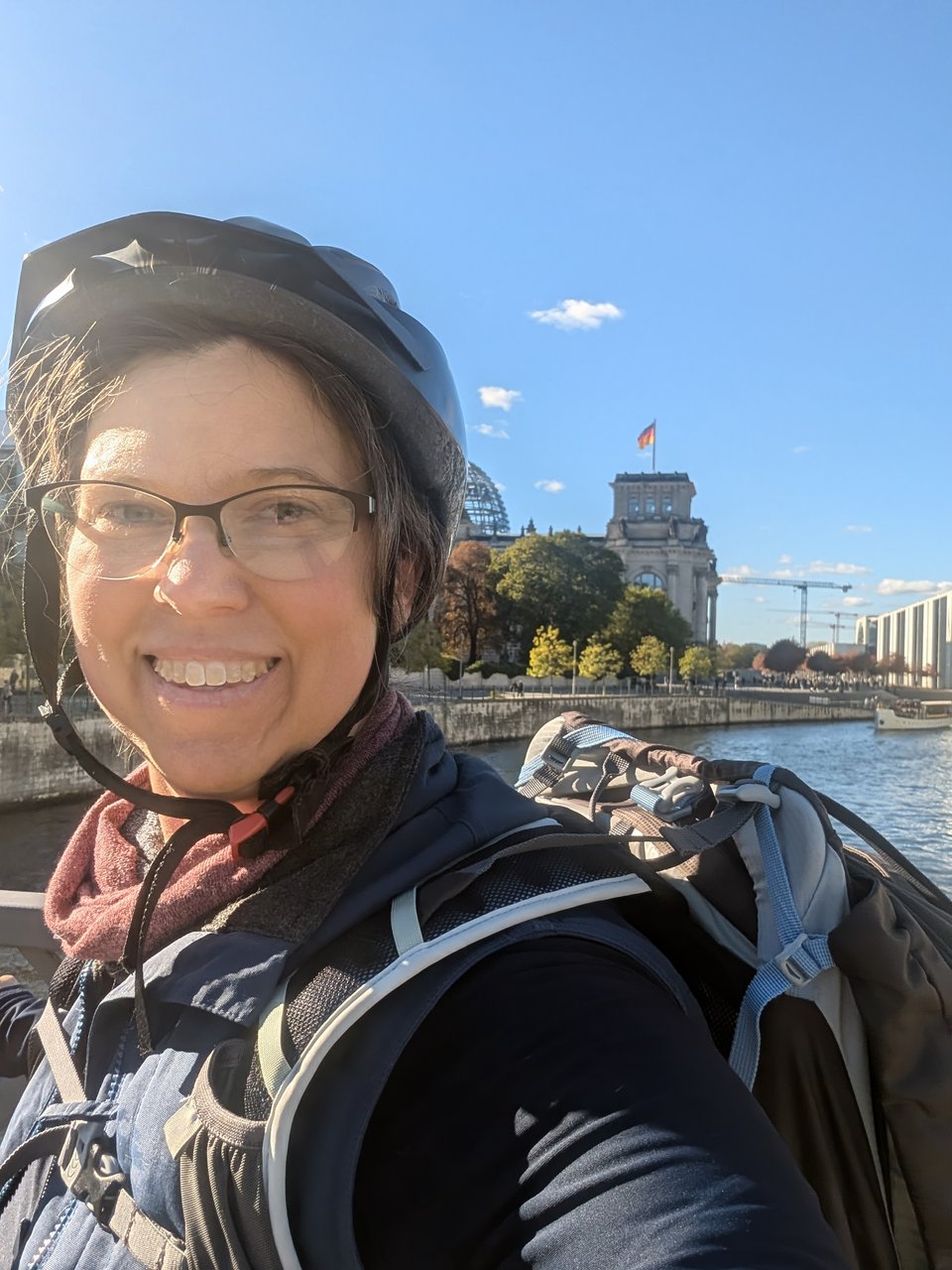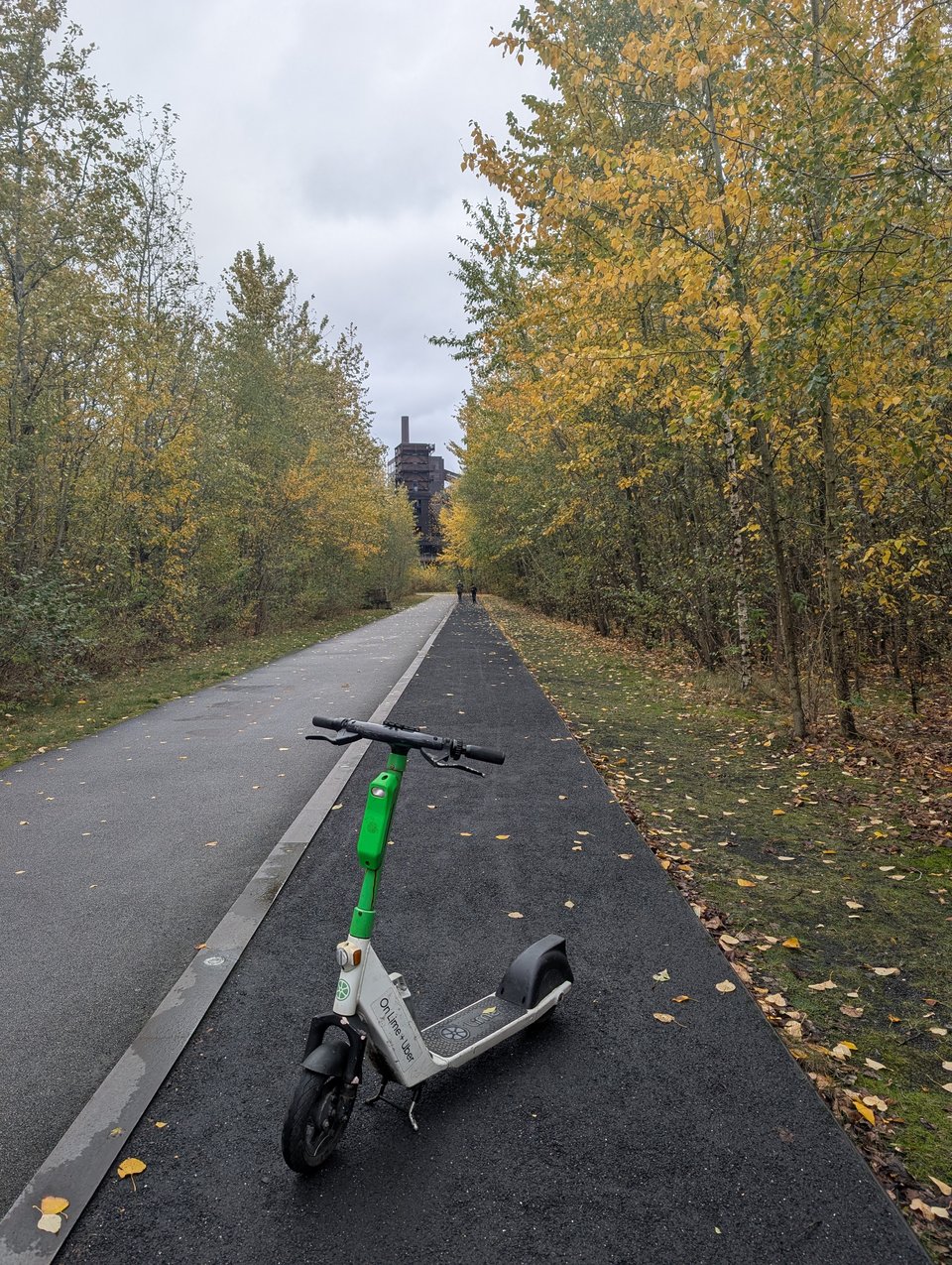The Irony of Feeling Healthier in Germany While Reporting on Why People Are Healthier There
I began recovering from chronic health issues while on a fellowship to study Germany’s health care.
(Read to the end for the most epic cheese competition I’ve ever seen.)
In October, I went to Germany to study the country’s health care system, which has some of the highest survey scores for equity and access in the world. I spent a week in Berlin meeting with various health officials, who lectured me and the three other AHCJ fellows about the pros and cons of German health care.

One of our tour guides, Roland Ilzhöfer of the KBV (Kassenärztliche Bundesvereinigung, the organization that represents outpatient health care providers), pronounced that we fellows now know more about how German health care works than most Germans do. And, friends, I want that health care, flaws and all.
I was in Germany while the government was shut down because our politicians can’t agree that everyone needs affordable health care. And here I was in a country that had relatively sane discourse about understandable policy considerations (which isn’t to say that they don’t have their own concerning flirtations with the far right).
The idea that people would be in medical debt is unthinkable there. The idea that one would have health insurance coverage and still be charged hundreds of dollars (or euros) for basic care is completely horrifying, rather than an everyday occurrence. Of course, pretty much any developed country’s health care system looks positively dreamy compared with that of the United States. Each system has its pros and cons, and Germany represents one avenue for improvement.
After my week in Berlin, I went to the Ruhr Valley for further reporting, which I will be writing about for at least the next six months.

Thankfully, I never needed to go to the doctor while in Germany. I didn’t have the time; I was pulling extremely long days that encompassed most of my time awake for 15 days straight. It was not a vacation. And yet, I felt so much healthier.
If I was pulling long days like that in the United States, I would feel horrible, because I wouldn’t be exercising as a normal part of my commutes. I also would not have quick, healthy food easily available. Those two things made a huge difference.
I biked, walked and took public transit almost everywhere I went. Once I got to the Ruhr, I also took some epic e-scooter rides on the bike paths along the old industrial railways that connect the six cities of the region.
In Berlin, it’s usually easier and cheaper to bike or take public transit than it is to take a car. So, that’s what I did. In America, it’s almost always the harder choice to take a bike or public transit, unless you live in a particularly progressive city. (This latter point is true in Germany, too, though the difference is not as stark. Most people in the Ruhr Region still use cars, although there’s a push to change that and public transit there is good by U.S. standards.)
The food, too, was amazing. Good bread and butter can be found in every little street shop for a reasonable price. The default for complimentary or cheap, quick food is held to a higher standard.
By the time I left, my chronic health conditions were much improved. I didn’t have to chase the weird symptoms I’ve had for several years with my various coping strategies to keep them at bay—a constant battle at home. I lost weight effortlessly, and I can now fit in the favorite pair of pants I had not brought myself to get rid of but also could no longer wear after I was pregnant five years ago. (I also have been doing other things at home for the past nine months, like lifting weights, that probably jumpstarted that weight loss long ago, and this was the last push that bumped my body into a new place. Let’s be clear that going to Germany is not a quick weight-loss plan, and weight loss isn’t my goal – feeling good is.)
I already exercise and eat well at home. But having healthy living normalized and easy made such a big difference. I’m trying to keep incorporating exercise into my day now that I’m home. I’m using my ebike to get to my favorite coffee shop and remote working haunts. But it’s not the same; it’s never the easier or quicker choice.
People in Germany kept asking me if I was going to stay in the United States. Every journalist I know is looking at the writing on the wall and wondering if it’s time to leave the country or leave the profession. It’s tempting. And yet, my husband and I love where we live. We love our community.
I want good health care and bikeable communities with decent public transit and a higher standard of living in my home. Living near family and in a community where people have known me a long time is worth a lot. I have no misconceptions about how emotionally hard expat life can be. But I keep wondering how much sooner and poorer I’m willing to die in order to have that home.
Recent Things I Recommend:
Former UVA President Details Department Pressure That Led to Ouster, by Michael S. Schmidt, NYT
James Watson, dead at 97, was a scientific legend and a pariah among his peers, Sharon Begley, STAT [the best obit of Watson I’ve seen, and a profound lesson in academic arrogance for all of us]
Katie’s Corner
Kristen Koopman is buried in grading right now, so here are my recs:
Lessons in Magic and Disaster by Charlie Jane Anders
I’m always on the lookout for good speculative fiction that depicts academia realistically, and this book does it. Even though the protagonist is a trans grad student in academia in the 2020s, which is ripe fodder for horror, the book generally takes a cozy mystery vibe and is often oddly calming. The theme of the book, that clarity in your desires and intentions is magical, is a good lesson for anyone navigating hard times and life choices.
Eddington, directed by Ari Aster
In this dark comedy horror Western, the pandemic and insanity descend on small-town America. While townspeople constantly talk past one another in their social media bubbles, they are too distracted and divided on their phones to note the real threat: the data center being built on the outskirts of town. This film provides ripe fodder for discussing this moment; I’m not sure I agree with all the depictions… but I don’t think anyone could make an entirely agreeable film on this theme. It’s worth the thought-provocation.
Tell Us What You Think
Please tell us here what sorts of content and subscriber perks you suggest. In the meantime, please subscribe to the free version and buy me a coffee here.
Something Fun:
The MAGIC of cheese and potatoes, also known as aligot!
https://www.reddit.com/r/BeAmazed/comments/y4r32y/cheese_competition_in_france/
About Me: